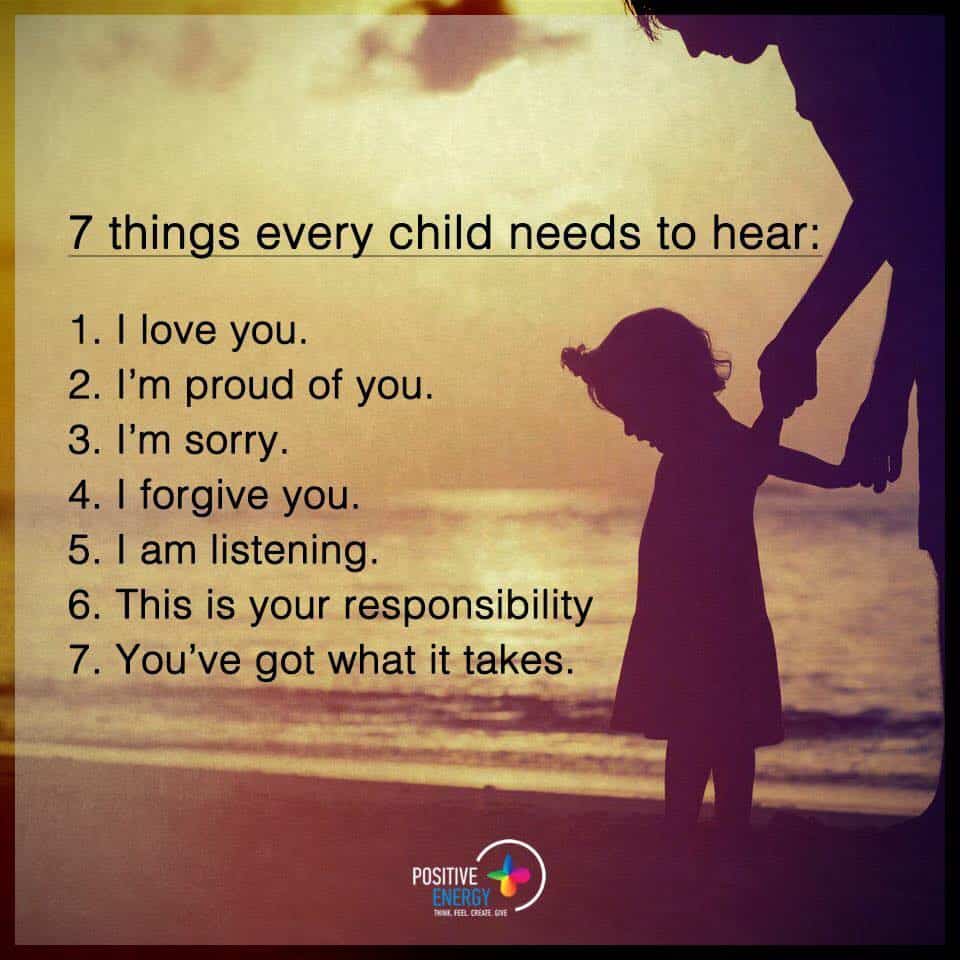Did you know that by age seven, a child’s brain is almost fully-developed – at 95 percent it’s adult weight, and functioning at its peak energy consumption? Seven years. This short period determines how young one will look at the world around them.
Nancy Guberti, MS, and Bionutritionist states, “Caregivers need to provide a nurturing environment and daily individualized communication. Negative or harsh treatment may come with emotional consequences in the future.”
Children need a stable and nurturing environment and one that promotes learning and communication. Parent/child interaction is the single most important type of communication throughout a person’s life. This ongoing interaction between caregiver (parent, guardian) and the child continues to remain particularly important up until adolescence.
Part of a parent’s responsibility is to inquire about their child’s mental state. Up until a certain age, most children will gladly tell you what’s on their mind (sometimes more than you need to know!) But there’s more to asking questions than getting information.
Asking open-ended questions – which require more than a yes/no answer – is a powerful way to understand what your child is thinking. Further, it’s a wonderful way to strengthen the bond with your child.
In this article, we list 11 great questions to ask your little one – and the rationale behind them.
11 Questions For Parents To Ask Children
“Children are not resilient, children are malleable.” – Bruce D. Perry, M.D., PhD
#1 What’s something fun you did today?
The type of questions you ask your child (and how you ask them) depends on their age, but this question – in some form – is a great place to start.
Dr. Gail Saltz, a clinical associate professor of psychiatry at Cornell University, states “Sharing what your child’s day was like and what is important to them grows your relationship.”
As your young one gets older, it’s a good idea to ask them about what they learned to cultivate a love of learning.
#2 What happened at school today?
When kids get finished with school, the last thing they want to do is talk about it. They’re probably a bit tired and want to play or do something else. Let them until dinnertime or so, and then ask them about their day at school.
If your child seems concerned or anxious about something, follow up with them.
#3 What are you grateful for today?
Research shows that teaching children how to express gratitude is essential to their development and overall well-being. Mealtime is an excellent opportunity to discuss ideas, principles, and values you think are important to instill in your kids – and teaching gratitude helps improve the child’s happiness and relationships.
#4 How are you feeling today?
It’s important that a child learns how to understand and manage their emotions. As a parent, it’s your responsibility to uncover what’s going on under the surface. Asking about your child’s feelings is powerful – and the best way to gauge if something isn’t right.
#5 What did you learn today?
Here again is a simple question that emphasizes the importance of learning. This question also encourages critical thinking skills, a talent that will continue to serve your child well into their adult years. This is also a good time to reemphasize the importance of continuous reading, learning, and studying.
#6 What do you think that person feels?
It’s natural for a child to place their thoughts and feelings above anyone else’s. Their brain is still developing the ability to understand emotions, including empathy. As a mature adult, you can help your child by asking them to wonder about how someone else may feel.
#7 Isn’t it beautiful outside today?
(Hint, hint)
Okay, so this is a closed-ended question, but an important one. However you may feel about a kid having an iPad, computer, and video games, cultivating an appreciation for nature is important. Taking your child outside, walking through a park, or joining them on a playground is a great way to encourage physical activity and interaction with nature.
#8 Who is your best friend? Why?
Yes, even as a youngster, the company they keep has an impact on their attitude and mindset. Asking this question helps to figure out what your child values in their peers. As a parent, you can make a choice whether or not this influence is positive or negative.
#9 How can you help someone today?
It goes without saying that we need more nurturing and empathetic people in the world. In reality, there isn’t a way to completely shield a child from the facts of life. Encouraging your child to think about others; in this case, carefully thinking about how they can help someone, is incredibly powerful. Follow up with them on this commitment to reinforce the importance of empathy.
#10 What are you most interested in doing?
Yes, this question is designed to stoke your child’s passions. We still have an education system that prioritizes rote memorization and testing. As such, it’s important to take the reins and encourage your child to do whatever makes them happy. (Creative thinking will become one of the most valued assets in the “new economy.”)
#11 What can you be doing better?
Your child knows when they’ve done something wrong or haven’t given their full effort. This is a brilliant question because it’s not judgmental or prodding in nature. You want what is best for your child – and, by asking this question, your child will know this.














 Community
Community

